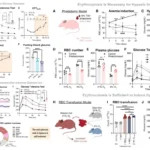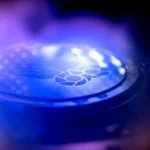If you’ve ever experienced itchy skin, a new study suggests that the cause might be a microbe dwelling on your body. Specifically, research reveals that the bacterium Staphylococcus aureus releases an enzyme that induces the sensation of itchiness by directly interacting with the skin’s nerve cells.
Scientists at Harvard Medical School found that a drug capable of interfering with this process successfully halted itchiness in laboratory mice. The enzyme responsible for the itching sensation is protease V8, released by Staphylococcus aureus. The research team discovered that this bacterial enzyme activates a protein present on nerve cells in the skin, creating a nerve signal perceived by the brain as an itch. The breakthrough sheds light on the connection between certain bacteria and the sensation of itchiness, particularly in skin conditions like eczema. Eczema affects a significant percentage of the population, with about 20% of children and 10% of adults experiencing this skin condition.
While previous research focused on the immune response and inflammation as triggers for itching, the role of bacteria, especially Staphylococcus aureus, has been less clear. People with eczema often have skin colonized by this bacterium, leading scientists to explore the potential link between bacteria and itch perception. The researchers applied Staphylococcus aureus to the skin of mice, resulting in intense scratching behavior and skin damage. Further investigation identified protease V8 as the key enzyme triggering the itching sensation. Importantly, an existing FDA-approved anti-clotting medication successfully blocked the protein activation on skin neurons in lab animals, alleviating the itch.
This discovery opens new avenues for understanding the mechanisms behind itchiness and potential targeted treatments. The findings suggest that bacteria, including Staphylococcus aureus, might directly activate itch neurons. The researchers speculate that certain bacteria may have evolved mechanisms to induce scratching, possibly aiding their spread to other individuals or body parts.
While the reasons behind Staphylococcus aureus-inducing itching remain unclear, the study provides valuable insights into a previously enigmatic aspect of human physiology. Future treatments targeting specific itch-inducing molecules could offer a more precise and effective approach, avoiding damage to beneficial bacteria on and within the body. The research team emphasizes the need for further exploration to understand the complexities of itching and develop potential treatments fully.





